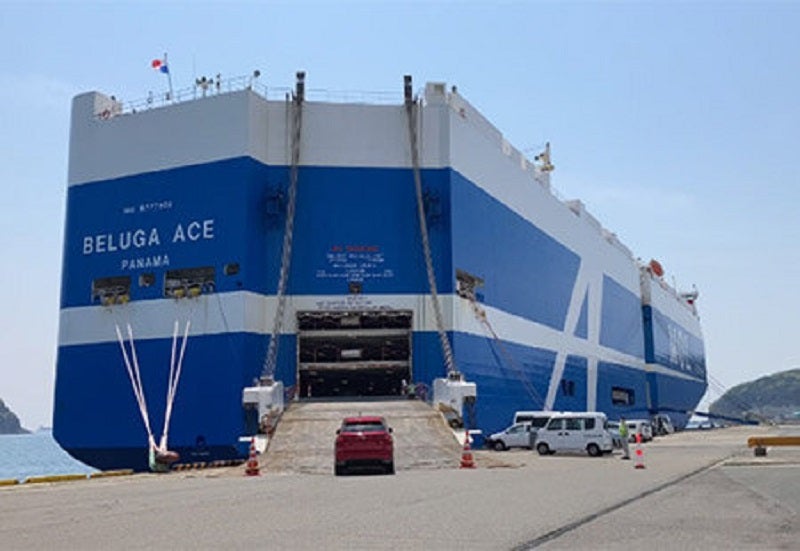
Japanese shipping company Mitsui OSK Lines (MOL) has concluded a carbon-offset voyage with one of its car carriers, which shipped completed cars from Japan to Europe.
The MOL-operated Beluga Ace loaded the completed cars from Mazda Motor Corporation and departed the Port of Hiroshima on 18 April.
It arrived at the Port of Bristol, UK, on 28 May.
During the voyage between Japan and Europe, all processes, from production to fuel oil consumption, produced nearly 4,000 tonnes of CO₂ emissions.
French certification company Bureau Veritas verified the calculation method of this volume.
Climate Neutral Commodity certified the complete process, from calculating CO₂ emissions and verifying the process to compensating all CO₂ emissions with carbon credits.
How well do you really know your competitors?
Access the most comprehensive Company Profiles on the market, powered by GlobalData. Save hours of research. Gain competitive edge.

Thank you!
Your download email will arrive shortly
Not ready to buy yet? Download a free sample
We are confident about the unique quality of our Company Profiles. However, we want you to make the most beneficial decision for your business, so we offer a free sample that you can download by submitting the below form
By GlobalDataMOL stated that the carbon-offset voyage was conducted as a test case to study the detailed use of carbon credits for compensating CO₂ emissions in ocean shipping.
It used carbon credits produced from afforestation and reforestation projects in China and Ghana for the journey.
MOL said in a statement: “Both projects are certified by the international carbon credit standard management body Verra, and the credits were generated within the past five years.
“In addition, these projects contribute not only to absorbing and removing CO₂ from the atmosphere but also to several co-benefits, such as biodiversity conservation and job creation for local communities.”
Last June, the company announced a target of net-zero greenhouse gas (GHG) emissions by 2050 through increased emission reduction initiatives. These include replacing vessels with low-carbon vessels as well as conducting research and development of zero-emission fuels.







